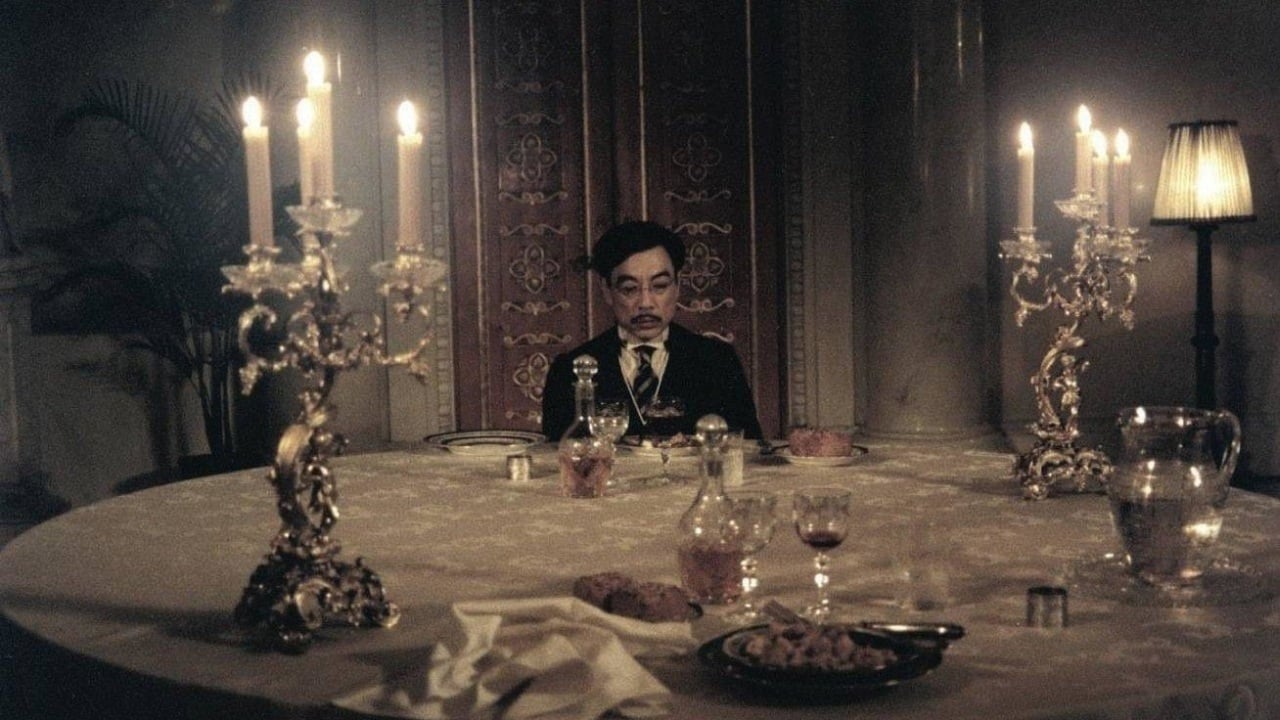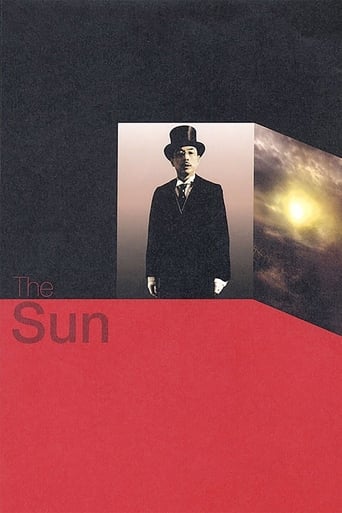Lumsdal
Good , But It Is Overrated By Some
Stoutor
It's not great by any means, but it's a pretty good movie that didn't leave me filled with regret for investing time in it.
Claire Dunne
One of the worst ways to make a cult movie is to set out to make a cult movie.
Asad Almond
A clunky actioner with a handful of cool moments.
CountZero313
Sokurov's evocative account of Hirohito's fall from Heaven is mesmerizing in terms of narrative structure, photography and Ogata's performance. Ogata quite literally puts his life on the line by taking this role; he clearly feeds off that tension to provide a quite stunning portrayal of one of the 20th century's leading figures, one whose absence from artistic portrayal stands in juxtaposition to the pivotal role he played in leading his country through world war, nuclear destruction, to revival as an economic superpower. Think about Hitler, Mussolini, Churchill, Eisenhower, Stalin and Hirohito. Which one do you feel least able to describe? Sokurov and Ogata play on that enigmatic image. Ogata chooses to take the physical aspects of Hirohito that we know - the twitches, stiffness, child-like expressions - and amplify them to heighten the unreality of the situation, complementing Sokurov's other- worldly sepia tinted grainy photography. The film does not strive for historical accuracy. It is unlikely that Macarthur's interpreter would have been a nationalist zealot. The casting of Robert Dawson as Macarthur is the film's biggest failing - the man is more wooden than Sherwood forest. And the American photographers look like American students studying in Russia trying to earn a few rubles as extras - which is probably what they are. It is a shame that budget limitations and casting errors detract from what could have been a sublime artistic achievement. Ogata, in particular, should have been served better for the riveting performance he gives here. The Sun polemically considers what might have happened when God became man. No future attempt to portray the life of Hirohito on celluloid can avoid referring to this film. Few will emulate it. The genius here is in exploring Hirohito the man and his inadequate attempts to comprehend the momentous events that engulf him at the end of the war. By staying with him, and not pausing to bow one's head before Hiroshima, Nagasaki, or the fire-bombing of Tokyo, Sokurov provides a glimpse of a man who remains, even after his death in the late eighties, a complete enigma. The transition from deity to man happens briefly, but palpably, at the end, when Hirohtio the figurehead is shown to also be husband and father. The Sun is food for thought on a much neglected man.
Asa_Nisi_Masa2
Very powerful film-making, which leaves you feeling very unsettled. Through the minutae of his days and his every gesture, nervous tick and grimaces, it describes the last days of the living God, the Emperor of Japan. It's already perfectly clear to everyone that Japan is on its knees and the war has been won by mere mortals. It's perfectly clear, and yet the nation apparently still needs to know that its Emperor is a God. Superficially, the movie could be compared to Der Untergang, The Downfall, in that it shows a previous icon of absolute power cooped up in his bunker, days before his complete demise. The mood of these two movies is so very different, though - there was life stirring in among the ashes of Oliver Hirschbiegel's Berlin, still. There is seemingly no life left at all in the devastation surrounding the Japanese Emperor's palace and bunker. You see so little of the physical destruction, possibly because the movie had a small-ish budget and they couldn't afford complete reconstructions, but you feel it everywhere. Never before have sea creatures preserved in formaldehyde been more eerie. I was blown away by the sequences of the catfish (a recurrent subject of traditional Japanese ink drawings) swimming in the sky like bomber planes over a nuclear-war devastated nightmarish landscape. All the way through, I loved the use of classical music, seemingly distant and distorted - Bach and Wagner, and others. Every little gesture and detail in the movie matters, every camera angle and perspective is carefully planned. Some might call it slow, but to be honest I was never bored. Thankfully, the movie is also completely non-judgmental of anyone. Despite the odd wooden performance, I recommend this to anyone who is used to quality world cinema.
garnetdurham
Robert Dawson as MacArthur was a poor choice. He looks nothing like the real General, neither in height nor stature. In a famous photo of the period, MacArthur towers over Hirohito, even in His top hat, this framing suited the General's ego, and was not re-created in this film. Noticeably absent also, was the Generals favorite corncob pipe in this film, something the General was never without throughout World War 2.Other than that, the movie was a fascinating look at the Emperor's life, albeit from a very short time span. I thought this movie would have been much more interesting had it covered the start of the World War 2 with the Emperor receiving His Banzai's on His White Horse and seeming invincibility, to His ultimate fall from from a living God to That of a mortal being and a broken ruler.
Chris Knipp
Sokurov's haunting recreation of how Emperor Hirohito spent the last hours before the Japanese surrender, this is a miraculous work, and it provided the most powerful aesthetic and emotional experience of the 2005 New York Film Festival, whose official selections were not lacking in depth and fine film-making. "The Sun" depicts a man who knows very well what is going on but lives in a cocoon, in a state of detachment and ineffectuality that becomes strangely heartrending. Issey Ogata's performance as the Emperor easily competes for hypnotic intensity with Bruno Ganz's Hitler in the German film "Downfall" -- but with a very different sort of bunker and a very different kind of man: a silent, immaculate country house with a few faithful servants in attendance; a small, frail but upright and dignified personage who can easily explain the causes of the Japanese defeat to his general staff but has never learned to dress himself or open a door. Even on this day he is more comfortable browsing through photos of his family and American movie stars, dictating notes on marine biology, and writing poetry. Despite the disgrace, he is selflessly happy that peace has come. He inks a brush to write a statement to his absent son, but instead drafts a few verses about the weather. Later he is taken to see Eisenhower, and then brought back again to dine with the general. He enjoys the wine and the meat and has his first taste of a Havana cigar. The Americans conclude that the Emperor is like a child. "What's it like being a living god?" Ike asks. And speaking, to the dismay of the Japanese interpreter, in perfect English, Hirohito says, "What can I tell you? You know, it is not easy being Emperor." These are just a few details in a film rich in telling ones. Simply enumerating them can't explain this film's slow, cumulative emotional wallop -- or the lovely, fantastic, dreamlike landscape images toward the end. This film about one of modern history's most humiliating defeats is a stunning triumph. "The Sun" demonstrates unmistakably that Andrei Sokurov is one of the world's great filmmakers.

